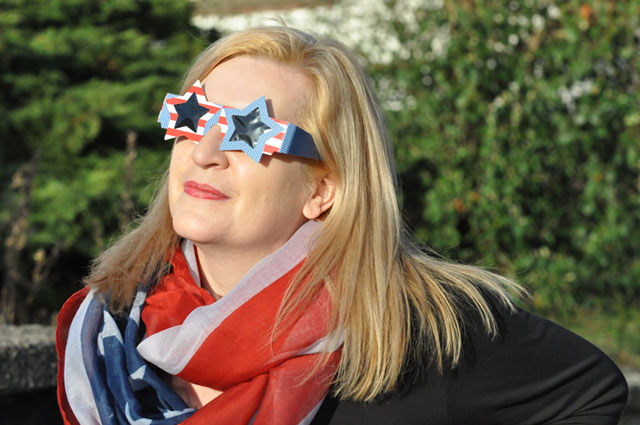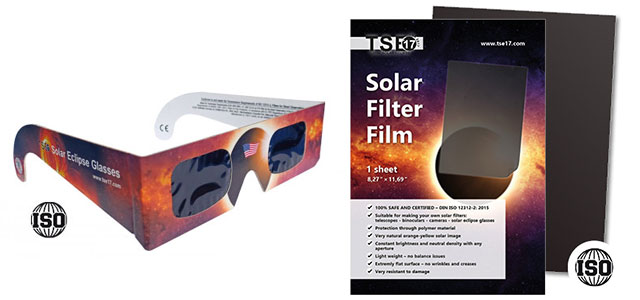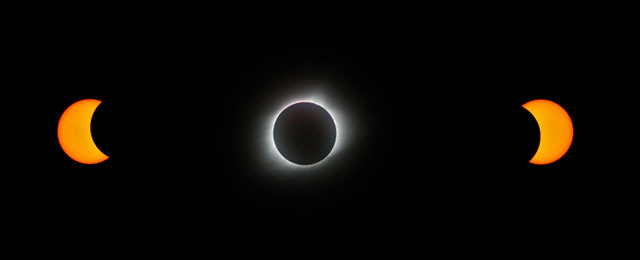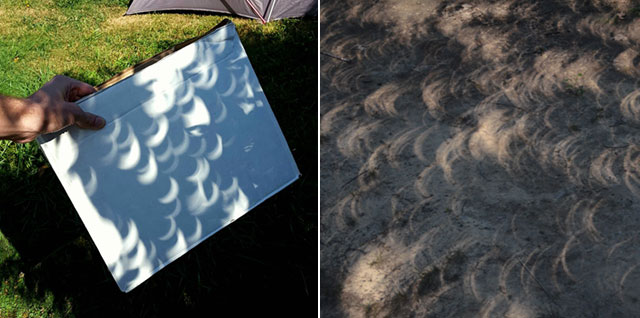Safety
Watching a solar eclipse can be an incredible experience, but it's crucial to do it safely to protect your eyes from serious damage. Looking directly at the sun, even during an eclipse, can cause permanent eye injury, including solar retinopathy, which can lead to vision loss. Here's how to safely enjoy this celestial event:
1. Use Proper Eye Protection

The use of special solar eclipse glasses for safe observation of a solar eclipse is essential.
- Eclipse Glasses: Always use eclipse glasses that use a special filter film or foil and are certified with the ISO 12312-2 standard. These glasses are specifically designed to block harmful solar radiation. Regular sunglasses, no matter how dark, are not safe.

Use Solar Eclipse Glasses and Filter Films to protect your eyes and your euqipment.
Each time before using please check front and back of each lens for damages such as scratches, pinholes or separation from frame. Wear your eclipse glasses to protect your eyes from solar radiation any time you look at the bright sun or the sun's reflection. When looking at a solar eclipse, use your eclipse glasses whenever any part of the bright sun, no matter how small, is visible during partial and annular phases. Children should observe the sun only with adult supervision.
- Solar Filters for Equipment: If you're using cameras, binoculars, or telescopes, make sure to attach solar filters that use special filter film or foil to the lenses. Never look through them without protection, even if you’re wearing eclipse glasses.
2. Different phases of a solar eclipse

Partial Phase – Totality – Partial Phase.
Eclipse glasses must always be worn during the partial or annular phases of a solar eclipse. If you are in the path of totality, where the moon completely covers the sun, it is safe to look at the eclipse without protection only during the brief phase of totality. This is when the moon completely covers the sun's disk, thus the day becomes night and the sun's corona is visible. However, as soon as the sun begins to reappear, immediately put your eclipse glasses back on to avoid eye damage.
For explanation of different eclipse types and phases see also the physics of solar eclipses.
3. Indirect Viewing Methods
- Pinhole Projector: One of the safest ways to watch a solar eclipse is by using a pinhole projector. You can easily make one using two pieces of cardboard. Punch a small hole in one piece and allow the sunlight to pass through it onto the second piece of cardboard, projecting a safe image of the eclipse. You can also make the projection on the floor, then no second cardboard is necessary.

Tree gaps function like a pinhole projector. (credit: Wikipedia)
- Tree Shadows: During a partial eclipse, look at the shadows cast by trees. The small gaps between the leaves function like small pinholes and naturally cast many crescent-shaped images of the partially eclipsed sun onto the ground.
4. Don't
- No homemade filters: Avoid using homemade filters, CDs, DVDs, or smoked glass, as they do not provide adequate protection against harmful solar rays.
- No welding glass: Welding glass reduce the brightness but do not filter out the dangerous UV radiation. If you do use welding glass, make sure tha it's at least shade 14 or darker. Lower shades are not safe.
- No unfiltered cameras or binoculars: Looking at the sun through a camera, telescope, or binoculars without certified solar filters can cause severe eye damage.
Also do do not look through binoculars or telescopes with eclipse glasses. Eclipse glasses only protect with unobstructed vision. - No Cameras: Do not use your (smartphone's) camera to look at the eclipse unless it is equipped with a proper solar filter, as the concentrated sunlight can damage both your eyes and the device.
By following these safety tips, you can enjoy the beauty of a solar eclipse without risking your eyesight.

